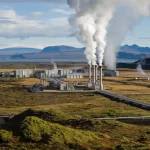The European Commission has adopted the Regional Transition Plan for Spain, according to which investments of approximately €869 million will be allocated to support a just transition towards climate neutrality in the most vulnerable regions of the country by 2030.
And the European Commission stated in a press statement (which it transmitted via its official website hours ago), that this financing, which will come from the Just Transition Fund (JTF), will help Spain to phase out coal by 2030, which will contribute to achieving a fair climate transition in the areas affected by the closure of mines. Coal and coal power plants, this includes in particular the region of Asturias, which will receive almost a third of Spanish funding from the JTF, along with other regions such as the province of A Coruña in Galicia, the provinces of Teruel in Aragon, León and Palencia in Castile and León, Almería, Cadiz and Cordoba in Andalusia.
The statement added that the JTF will support efforts to promote energy efficiency, circular economy, and renewable energy sources such as solar energy, offshore wind, renewable hydrogen, and green transformation in the field of industry. its performance in the field of energy and the promotion of an innovative project using microalgae for the production of renewable fuels in Cadiz.
In addition, financial assistance will be provided to small and medium enterprises and projects that lead to economic diversification and target sectors that are strategic for these regions. For example, the JTF will support small and medium enterprises in the agro-food industry in Córdoba, particularly in municipalities affected by the closure of a coal-fired power plant in the Guadiato Valley region.
According to the statement, it was finally added that the JTF will pay special attention to the training and rehabilitation of unemployed persons, employees of small and medium enterprises and workers in carbon-intensive industries, and to develop the necessary qualifications for the sustainable development of the territories and for workers to find well-paid jobs.












